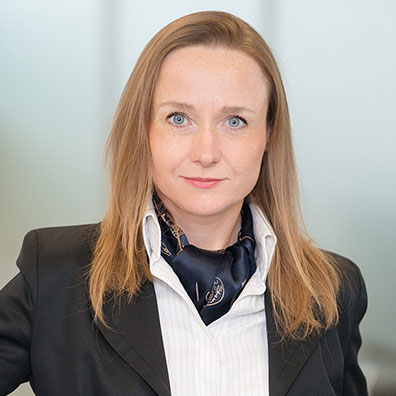High standards in claims management
VIG is systematically optimising claims handling. Methods such as closed file review are being rolled out in phases for countries and lines of business.
Around
29 IT tools
are being used to support claims handling
A closed file review was already performed in
4 companies
in Poland and Lithuania in 2017
VIG began to systematically review old claims in 2017. The so-called closed file review aims at finding potential weaknesses in claims handling and ensuring that errors are not repeated. Processes are optimised and training provided based on the findings to ensure that a standardised procedure is used in claims handling. VIG first used its specific methode for closed file reviews in Poland and Lithuania for motor and household insurance in 2017. Initial results already show significant potential savings of claims expenses. The closed file review also supports anti-fraud-management since better quality claims handling, such as detailed documentation with precise descriptions of the event, photographs and official documents, helps improve processes and make them more consistent.
Systematic claims analysis
Efficient claims handling needs to be based on correct information about the event in question. Just as customers have to rely on VIG if a loss occurs, VIG has to rely on the accuracy of the information provided. The new anti-fraud-management programme introduced in 2016 was therefore rolled out in more countries during the reporting year. “We are now operating in Poland, Romania, Bulgaria and Croatia”, says Justyna Śledziewska, Head of Competence Team Fraud Management. The results were already clearly visible in 2017 in the countries and lines of business where the new process was being used. The share of claims identified as possibly fraudulent increased almost four-fold. In the end, the VIG companies were able to significantly improve the correspondence between claims and the specified scope of coverage compared to the situation before the programme was introduced. “Improvements in claims management will increase this even more”, explaines Śledziewska. The total amount of claims that were not paid out due to these efforts was doubled.
Focus on motor insurance
The systematic anti-fraud-management will be introduced in more countries in 2018, first in Serbia, Slovakia and the Baltic states. It will also be rolled out in phases in other lines of business. The focus is currently on motor insurance. Initial roll-out has also taken place in the property and casualty line of business.
Questions for Justyna Śledziewska

Justyna Śledziewska, Head of Competence Team Fraud Management
How do you help Group companies optimise their claims management?
We form a team with the local employees. The anti-fraud-management initiative would not be possible without a collaboration like this. We bring best-practice examples, experience from other countries and the Group methodology with special design elements as well as a specific process. One of the key elements in our method is a list of indicators for possible fraud. The list, however, must be modified for each market. Initial results can already be seen two to three months after the kick-off meeting with the local employees.
Do you use computer-assisted analysis methods?
We feel that we first have to master the process manually. In the next step starting in 2018, we will also use IT tools to assist with automatically identifying cases of possible fraud using advanced analytics applications.
What are your goals for 2018?
In addition to rolling out anti-fraud-management in other countries and lines of business, we want to create a Group-wide community of experts and promote the exchange of knowledge and experience. It is a dynamic process that requires constant learning and improvement.